Think you need another energy drink or high-tech supplement to upgrade your brain power? Think again. If you’re chasing better focus, sharper memory, and peak performance, nothing compares to the power of sleep. In fact, sleep is your body’s original “nootropic”—it repairs, recharges, and literally rewires your brain for better thinking.
But let’s get real: in our always-on, hustle-obsessed culture, sleep is usually the first thing we sacrifice. Whether you’re grinding at work, binge-watching Netflix, or scrolling TikTok until 2 a.m., it’s way too easy to push bedtime back and hope coffee saves you in the morning. Unfortunately, poor sleep is the fastest way to tank your mental game, leaving you with brain fog, forgetfulness, and zero motivation.
Ready to make sleep your secret weapon for cognitive enhancement? This guide will break down exactly why sleep matters for brain health, the best habits for deep rest, top supplements for restorative sleep, and the coolest gadgets to help you snooze smarter.

The Link Between Sleep and Cognitive Performance
Here’s what the science says: high-quality sleep is directly tied to everything from attention and problem-solving to creativity and emotional control. Studies show that even a single night of poor sleep can mess with your memory and slow your reaction times—while chronic sleep debt is linked to long-term issues like dementia and cognitive decline.
When you sleep, your brain goes into clean-up mode—clearing out waste, storing new memories, and prepping you for tomorrow’s challenges. If you want true cognitive enhancement, better sleep isn’t optional; it’s absolutely foundational.
Why We Undervalue Sleep in a 24/7 World
Let’s be honest: we live in a culture that glorifies “team no sleep.” From college all-nighters to late-night emails, we act like sleep is a luxury or even a weakness. But burning the candle at both ends doesn’t make you more productive or creative—it just fries your brain.
Learning to prioritize rest is a total mindset shift. But trust me, once you experience how much clearer, calmer, and sharper you feel after a week of great sleep, you’ll never want to go back.
How Sleep Enhances Cognitive Function>
Wondering what’s actually happening in your brain while you’re snoozing? Turns out, sleep is when your mind does its best work.
Sleep and Memory Consolidation
Every day, your brain takes in a tidal wave of information—facts, faces, phone numbers, random TikTok dances. During deep sleep (especially slow-wave and REM stages), your brain sorts through all this data, deciding what to keep and what to toss. This process, called memory consolidation, transforms short-term memories into long-term knowledge. No wonder you remember more after a good night’s sleep!
Students, professionals, and anyone learning new skills should treat sleep like study fuel. If you’re pulling all-nighters, you’re actually sabotaging your ability to remember and apply new information.
Creativity, Problem-Solving, and Focus
Sleep isn’t just about memory—it’s also key for creativity and problem-solving. Ever wake up with a fresh solution to a problem that stumped you the night before? That’s no accident. During sleep, your brain makes unique connections and “replays” information in ways that spark insight and innovation.
On the flip side, lack of sleep shrinks your attention span and tanks your ability to focus. The result? More mistakes, more frustration, and way less creative thinking.
Signs Your Brain Needs Better Sleep
We all have a rough night here and there, but how do you know if your sleep is really holding back your cognitive potential?
Daytime Drowsiness and Brain Fog
If you’re struggling with:
-
Midday crashes and feeling groggy even after a full night’s sleep
-
Trouble remembering names, dates, or appointments
-
Difficulty focusing at work or school
-
Needing caffeine just to feel “normal”
...your brain is basically begging for better sleep. Brain fog isn’t just annoying—it’s your body’s SOS signal.
Long-Term Risks of Poor Sleep
Consistently short-changing your sleep isn’t just about being tired. Chronic sleep deprivation is linked to:
-
Increased risk of Alzheimer’s and other forms of dementia
-
Lowered immune function and more frequent illnesses
-
Heightened anxiety, irritability, and even depression
-
Weight gain and metabolic issues
The sooner you fix your sleep, the sooner your brain (and body) can recover and thrive.
Building Sleep-Boosting Habits for Better Brain Power
Let’s talk practical steps—no “sleep hacks,” just real habits that work.
Setting a Consistent Sleep Schedule
Your body thrives on routine. Going to bed and waking up at the same time—even on weekends—trains your internal clock, making it easier to fall asleep and wake up naturally. This “circadian rhythm” is tied to everything from hormone release to brain detox.
-
Try to get at least 7–9 hours of sleep per night.
-
Set a regular bedtime and stick to it as much as possible.
-
Wake up at the same time, even if you’re tempted to sleep in.
A steady routine equals better, deeper sleep and more brain power.
Creating the Perfect Sleep Environment
Your bedroom should be a sanctuary for rest. Here’s how to set it up:
-
Keep it cool, dark, and quiet—use blackout curtains, earplugs, or a white noise machine if needed.
-
Ditch the screens at least 30–60 minutes before bed. Blue light from your phone or TV suppresses melatonin, your body’s natural sleep hormone.
-
Try relaxing routines—dim the lights, read a book, stretch, or meditate.
Even little changes (like switching to a dim bedside lamp after 9 p.m.) can make a big difference.

Nutrition and Supplements for Restorative Sleep
Food, vitamins, and supplements can make or break your ability to fall (and stay) asleep.
Sleep-Supportive Nutrients and Foods
-
Magnesium: Supports muscle relaxation and calms the nervous system. Find it in nuts, leafy greens, and dark chocolate.
-
Tryptophan: An amino acid found in turkey, eggs, and seeds; it helps make serotonin and melatonin.
-
B vitamins: B6, B12, and folate all play roles in sleep quality and circadian rhythm regulation.
-
Complex carbs: Oats, brown rice, or sweet potatoes in the evening can help promote melatonin production.
Avoid big meals, sugar, and alcohol close to bedtime—they can mess with your deep sleep.
Best Supplements for Deep, Restful Sleep
If you need a little extra help, these supplements are favorites for supporting restorative sleep:
-
Melatonin: Best for shifting sleep schedules (like jet lag or night shifts), but not for everyday use.
-
Magnesium glycinate: Gentle, calming, and good for sleep.
-
L-theanine: Found in tea, it promotes relaxed focus and smooth sleep onset.
-
Valerian root and passionflower: Herbal remedies used to reduce anxiety and improve sleep quality.
-
GABA: A calming neurotransmitter sometimes used in sleep blends.
Always choose high-quality, third-party-tested supplements, and talk to your doctor before starting anything new—especially if you’re on medication.
Smart Gadgets and Technology for Sleep Optimization
Tech isn’t just about late-night screen time and distractions. Today, smart gadgets can actually help you improve sleep quality and, as a result, upgrade your cognitive performance.
Sleep Trackers and Wearables
Modern sleep trackers—think Oura Ring, Whoop Band, Fitbit, or Apple Watch—give you deep insights into how well you’re really sleeping. These gadgets monitor things like heart rate, movement, and sleep cycles to show you patterns over time. You’ll see when you’re getting restorative REM and deep sleep, and what might be disrupting your rest.
The best part? Sleep data makes it easier to spot trends—maybe that late-night snack or glass of wine is sabotaging your deep sleep, or perhaps you actually need to go to bed earlier to feel your best.
Sound Machines, Smart Lights, and More
-
White noise machines or apps drown out city noise or snoring and help signal “sleep mode” to your brain.
-
Smart lights can mimic the natural sunset and sunrise, gradually dimming at bedtime or waking you with soft, natural light. This helps regulate your circadian rhythm (unlike harsh phone alarms!).
-
Temperature control devices like the ChiliPad or Eight Sleep mattress keep your bed at the perfect sleep temp—ideal if you’re always too hot or too cold at night.
-
Blue light blocking glasses let you enjoy some evening screen time without wrecking your melatonin levels.
These gadgets aren’t magic, but they’re powerful tools for creating a sleep-friendly environment—perfect for anyone looking to optimize brain health.
When Sleep Still Isn’t Enough: Red Flags and What to Do
Sometimes, even the best sleep habits and gadgets aren’t enough. If you’re still waking up exhausted or struggling with brain fog after a full night’s rest, it’s time to dig deeper.
Medical Conditions and Professional Help
Some common culprits behind stubborn sleep issues include:
-
Sleep apnea: Interrupted breathing during the night, often signaled by loud snoring and daytime sleepiness.
-
Restless legs syndrome: Uncontrollable urge to move your legs at night, making restful sleep tough.
-
Insomnia: Trouble falling or staying asleep, even when you’re tired.
These problems require professional assessment—don’t ignore persistent sleep troubles! A sleep doctor can help you find answers and real solutions.
The Role of Sleep in ADHD, Anxiety, and Cognitive Decline
Sleep and mental health are tightly connected. Issues like ADHD, anxiety, and depression can all disrupt sleep—and, in turn, poor sleep makes these conditions harder to manage. There’s also mounting evidence that long-term sleep loss is linked to cognitive decline and even Alzheimer’s.
If you’re managing any of these issues, quality sleep is one of the most powerful tools for better brain health. Never hesitate to ask your doctor for support or a referral to a sleep specialist.
Conclusion: Making Sleep Your Cognitive Superpower
At the end of the day, no pill, gadget, or hack compares to the raw power of great sleep for cognitive enhancement. Sleep is when your brain cleans up, files away memories, sparks new connections, and preps you for a sharp, creative tomorrow. If you want to crush it at work, school, or in your personal life, prioritize your rest.
Build better sleep habits, use supplements and gadgets wisely, and listen to your body’s cues. Your brain will reward you with clearer thinking, better focus, and the kind of energy you just can’t fake. Sleep isn’t a weakness—it’s your brain’s superpower.
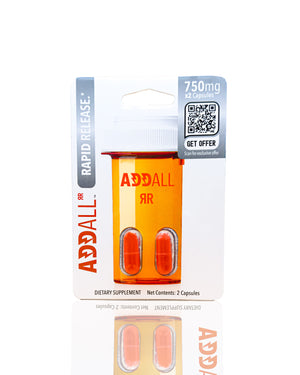
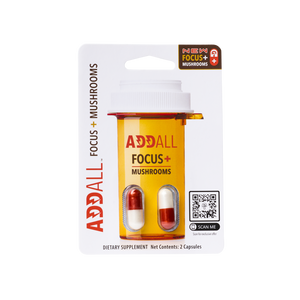

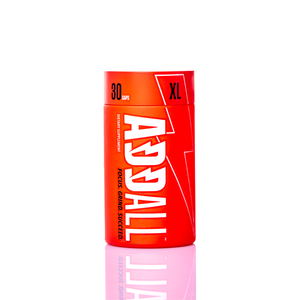
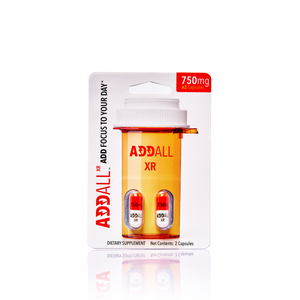
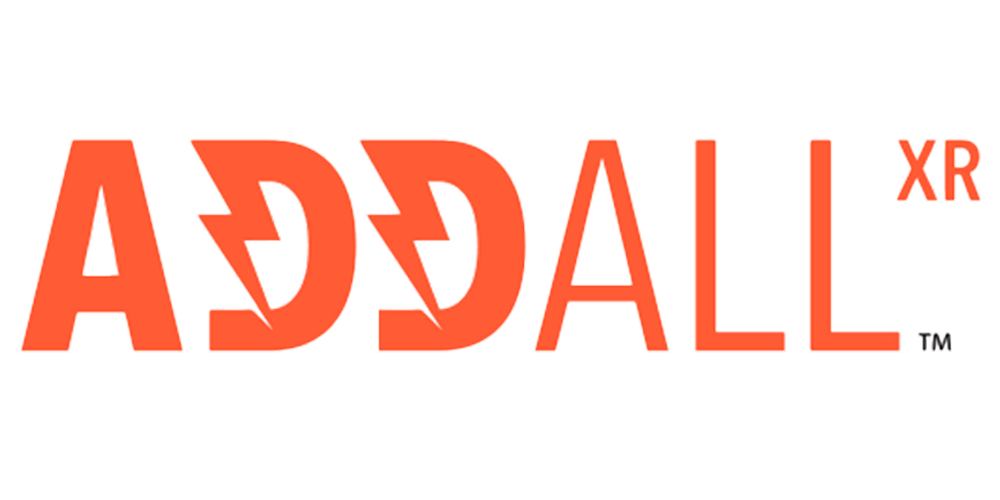
 Addall XR
Addall XR
 Addall XL
Addall XL
 Addall
Addall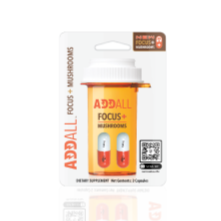 Addall
Addall Addall
Addall
 Compare
Compare




















































